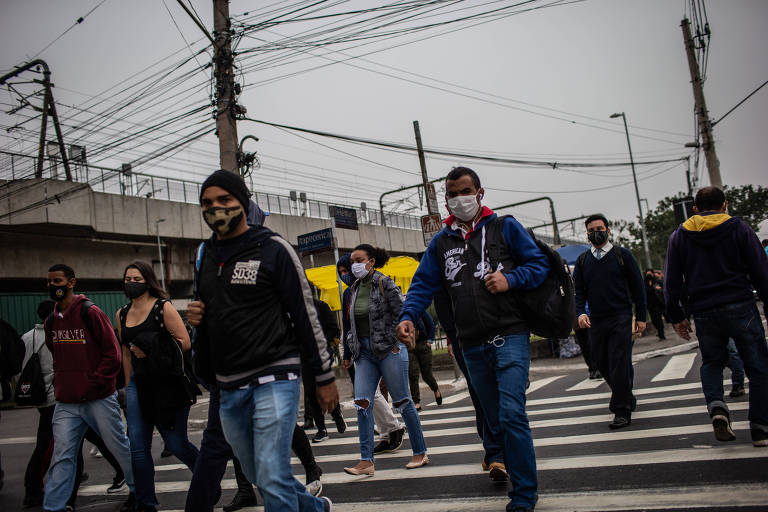White women earn 14 percent more than black women who have the same age, education, and state of residence in Brazil. In 2019, this meant that, on average, black and brown women workers received R$ 475 less per month.
The inequality of female income by skin color increased in relation to 2012, when it was 11.5%, equivalent to R$ 364 per month (discounting inflation for the period).
In the case of Brazilian men, white men earn 13% more than their black peers with similar demographic and educational characteristics. This percentage, which represented R $ 624 less received by blacks and browns per month in 2019, has fluctuated little over the past seven years.
According to researcher Guilherme Hirata, a consultant with IDados who made the calculations for Folha, it is challenging to extract how much of these differences are related to skin color.
The need to guarantee income amid the economic crisis of recent years may, for example, explain part of the recent increase in inequality between black and white women in the country: "It may be that black women are more likely to accept reduced wages or jobs that pay less," he said.
The share of black and brown workers who are heads of households is higher than that of white women, which may contribute to the recent unfavorable trend.
But why are there more black women who are single mothers in Brazil? Why do black students have lower grades at school?
Why do black and brown adults still earn less than whites and occupy so few leadership positions? And why, although they are 55.8% of the population, do they represent only 24.4% of the country's federal deputies?
Social science areas, such as sociology, argue that racism explains these results - or at least part of them - some decades ago.
More recently, economic studies have also come to offer evidence that discrimination is at the root of processes that harm blacks in various spheres of life in Brazil.
Translated by Kiratiana Freelon
